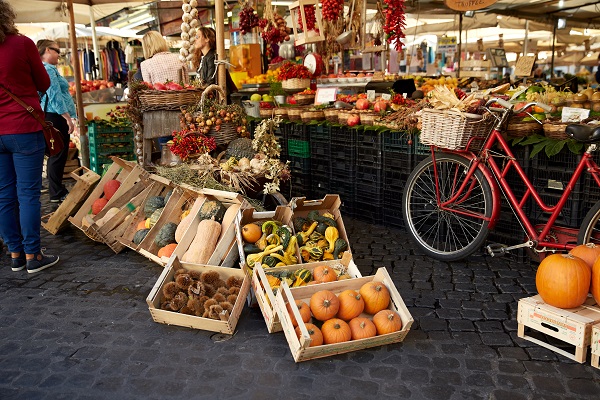

A full kitchen is included in all housing options when you study abroad at John Cabot University. That means that you can enjoy local Italian produce and cuisine while learning a new recipe at the same time. Eating healthy is a part of making sure you succeed in your studies and stay in good shape to enjoy your time in Rome. Using whole foods in line with the “slow food” movement (using local ingredients), you can nourish your body while taking in a bit of Italian culture. Most people think of pasta when they imagine eating in Rome, but there are unending options to take your palate on an adventure. Visit nearby markets for ingredients and use these easy Italian recipes for a night in with friends or a solo evening to decompress. Read on for what you can whip up in your Italian kitchen!
1. Every JCU Student should try Local Artichokes
While you’re away from home in a new environment, eating plants that grow from the soil around you lets you immerse your senses into your new setting. If you’re looking to eat seasonally, artichokes, or carciofi, are prime in the winter. The globe artichoke can be prepared simply in your residence, gently cooked on the stovetop in water with herbs, garlic, olive oil, and wine. While you’re at it, try the Italian herb nepitella, a minty Mediterranean herb.
Artichokes have tender centers surrounded by a strong armor of leaves, representing positive thoughts for the future, such as hope, peace, and prosperity. Not a bad omen for what your future could hold after you study abroad in Rome, surrounded by culture and inspiration!

2. Mushroom Lovers have to try Funghi Porcini in Rome
September is a wonderful month to try porcini mushrooms, which you’ll surely see on menus all over the city – Italian recipes feature these in pastas and pizzas. Porcini usually pop up in markets from July to September and have a rich, woodsy taste.
In your kitchen, you can roast these local fungi right in your oven, brushed with olive oil and seasoned with local herbs and garlic. For those interested in the history behind what’s on their plate, Ancient Romans referred to mushrooms as “food of the Gods” and valued their nutritional worth as well as their fragrant, robust profiles - not to mention their antioxidants that can boost your brain for class!
3. Taste Italian Summer when you Study Abroad in Rome with Easy Salads
On a study break, try a fresh local tomato to refresh your senses – called pomodori in Italian, tomatoes are in season during the summer and hit their peak in August – which is also a great time to dig into some eggplant or other vegetables and local fruits! Time management is a priority for many JCU students, as you want to make the most of your experience and excel in your courses. Quick cold salads are a great way to treat yourself to some local Italian cuisine during a study session without spending too much time in the kitchen.
Caprese salad features roma tomatoes, mozzarella, basil, olive oil, and balsamic vinegar. These are all Italian foods that you should have on your bucket list. You can find all of these ingredients locally and will notice the difference when they come straight out of Italy.
Are you interested in studying abroad at an American University Rome?
Contact John Cabot University for more information!




